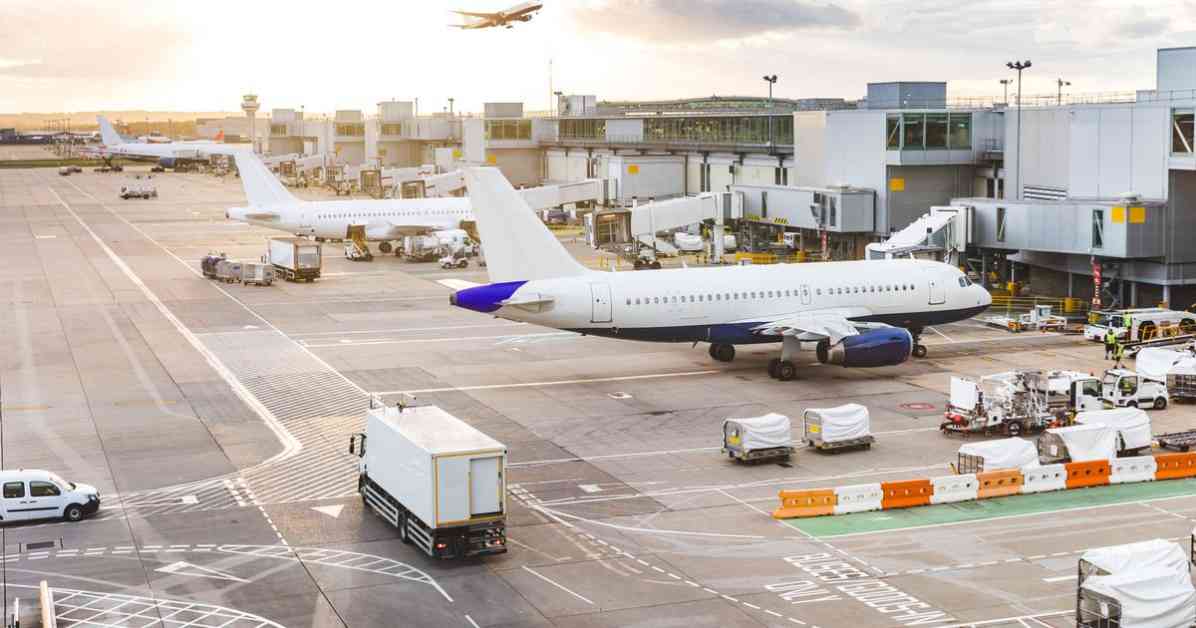The UK Foreign Office has recently released a list of 17 countries that are deemed too dangerous for British tourists to visit. These destinations have been labeled as “do not travel” due to a variety of reasons such as rampant conflicts, high crime rates, and heightened tensions. As the holiday season approaches, it’s important for UK travelers to be aware of these risky destinations and adjust their travel plans accordingly.
Understanding the ‘Worst Countries’ List
The World Population Review has compiled a list of the 21 “worst countries” for UK tourists, shedding light on some surprising inclusions that may give travelers pause. This index ranks countries based on factors like safety, security, and overall risk for visitors from the UK and US. It serves as a valuable resource for those planning their next international trip, providing insights into destinations that should be approached with caution.
According to the report, travel is a highly subjective experience, with personal preferences and individual risk tolerance influencing perceptions of safety and desirability. However, in certain countries, the risk of violence, harassment, kidnapping, imprisonment, and even death is significantly elevated, making them some of the worst places in the world for travelers to visit.
The Most Dangerous Destinations
Among the 17 countries on the Foreign Office’s “do not travel” list are some familiar names that have long been associated with conflict and instability. Afghanistan, for example, has been a hotspot for violence and political turmoil, particularly following the withdrawal of US troops and the return of the Taliban to power in 2021. The country’s new laws, including restrictions on women’s rights and public behavior, have raised concerns about safety and security for foreign visitors.
Belarus, under the leadership of President Alexander Lukashenko, has aligned itself closely with Russia in the ongoing conflict in Ukraine. The risk of arrest for engaging in activities deemed illegal by the Belarusian regime is a significant concern for British nationals, with limited support available in case of emergencies.
Burkina Faso, located in West Africa, is plagued by terrorist activity and sporadic outbreaks of violence, making it a dangerous destination for travelers. Kidnappings and political instability further contribute to the country’s high-risk status, prompting the Foreign Office to advise against all non-essential travel to the region.
Heightened Risks and Warnings
The Central African Republic, another country on the “do not travel” list, faces ongoing tensions and violence between the government and rebel groups. The lack of a British Embassy in the country limits support for UK travelers, with security conditions outside the capital, Bangui, deemed extremely unstable.
Haiti, known for its long-standing gang violence and criminal control in major cities like Port-au-Prince, poses a significant risk to visitors. Armed robberies, kidnappings, and other violent crimes are common in certain areas, prompting the Foreign Office to issue strong warnings against travel to the country.
Iran and Iraq, both grappling with internal conflicts and regional tensions, are also considered high-risk destinations for British tourists. The threat of arrest, terrorism, and violence looms large in these countries, with limited support available from the Foreign Office in case of emergencies.
Lebanon, Libya, Mali, Niger, and South Sudan are among the other countries on the list, each facing unique challenges ranging from political instability to armed conflicts and criminal activity. The ongoing conflict between Russia and Ukraine has also made both countries dangerous for Western tourists, with the risk of arrest, violence, and limited support from embassies in case of emergencies.
Staying Informed and Making Safe Choices
As travelers prepare for their next international adventure, it’s essential to stay informed about the risks and challenges posed by certain destinations. The Foreign Office’s “do not travel” list serves as a valuable resource for UK tourists, offering insights into countries where safety and security concerns are particularly acute.
While the allure of exotic locales and unfamiliar cultures may be enticing, it’s crucial to prioritize personal safety and well-being when planning a trip abroad. By heeding travel advisories, staying informed about local conditions, and making prudent choices, UK tourists can reduce their risk of encountering dangerous situations while exploring the world.
In conclusion, the Foreign Office’s list of 17 countries on the “do not travel” list for British tourists highlights the importance of safety and security when planning international trips. By understanding the risks posed by certain destinations and taking necessary precautions, travelers can enjoy a memorable and safe travel experience.













